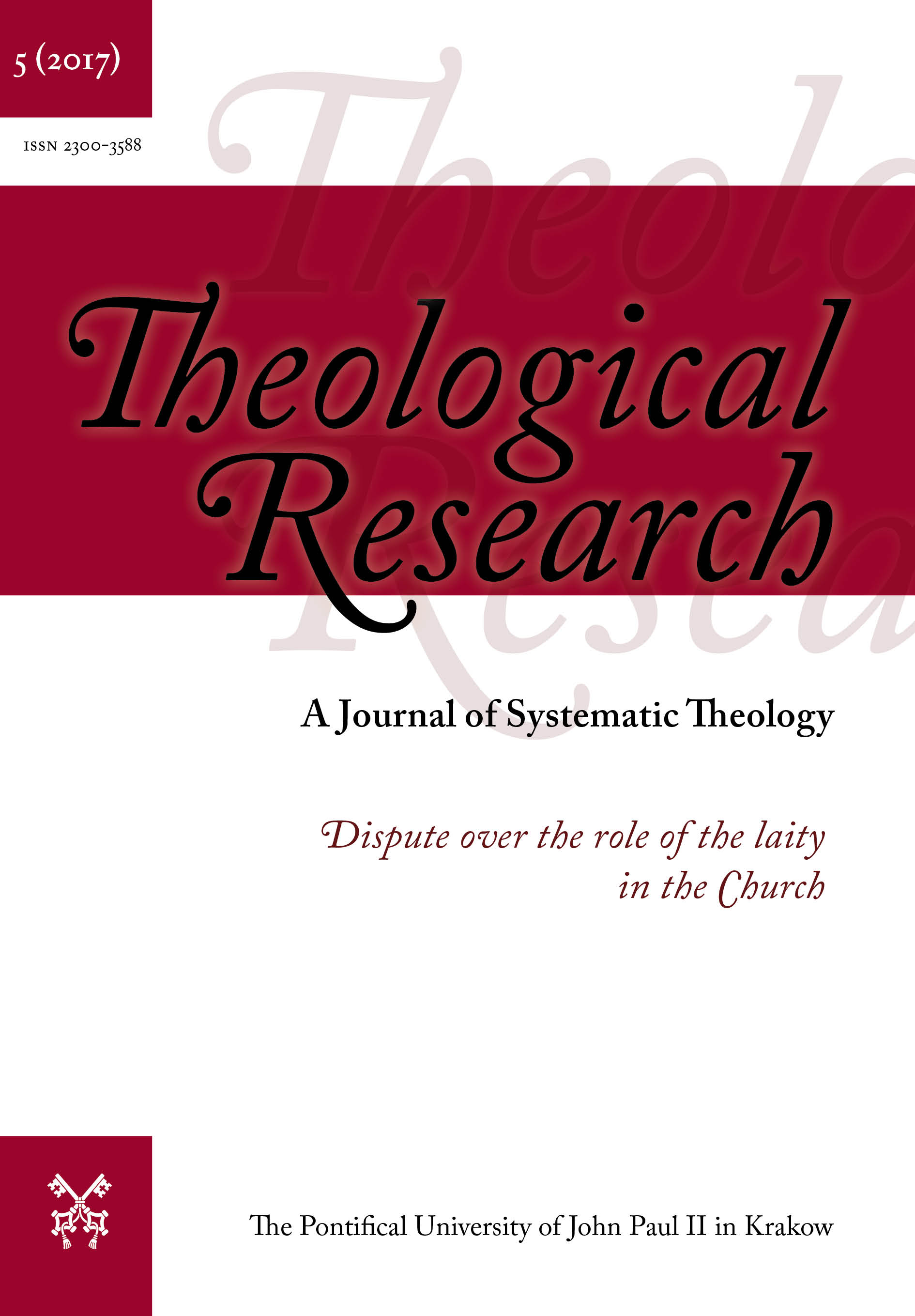Schelling and Luther
DOI:
https://doi.org/10.15633/thr.3303Słowa kluczowe:
FWJ Schelling, Martin Luther, philosophical religion, Deus absconditusAbstrakt
Although it would be a stretch to consider FWJ Schelling a Lutheran, he shared some critical features of Luther’s critical engagement with Catholicism. This essay engages this mutual confrontation, and then discusses the new horizon, what Schelling dubs the Johanine Church, the church for everyone and everything, that is the latent promise of the Lutheran (and Pauline) confrontation with the Petrine (or Catholic) Church. As such, this essay is an exercise in what Schelling called philosophical religion, a fruit of his late turn to positive philosophy.
Bibliografia
Breton S., The Word and the Cross, trans. J. Porter, New York 2002.
Laughland J., Schelling versus Hegel: From German Idealism to Christian Metaphysics, Aldershot–Burlington 2007.
Luther M., Concordia: The Lutheran Confessions – A Reader’s Edition of the Book of Concord, second edition, ed. P. T. McCain, Saint Louis 2006.
Mjaaland M. T., The Hidden God: Luther, Philosophy, and Political Theology, Bloomington–Indianapolis 2016.
Schelling F. W. J., Initia Philosophiæ Universæ (1820–21), Hrsg. H. Fuhrmans, Bonn 1969.
Schelling F. W. J., Philosophie der Offenbarung 1841/42 [The Paulus Nachschrift], second, expanded edition, Hrsg. M. Frank, Frankfurt am Main 1993.
Schelling F. W. J., Schellings Sämtliche Werke, Hrsg. K. F. A. Schelling, Stuttgart–Augsburg 1856–1861.
Schelling F. W. J., Schellings Werke: Nach der Originalausgabe in neuer Anordnung, Hrsg. M. Schröter, Munich 1927.
Schelling F. W. J., Urfassung der Philosophie der Offenbarung, two volumes, Hrsg. W. E. Ehrhardt, Hamburg 1992.
Schelling F. W. J., Die Weltalter in den Urfassungen von 1811 und 1813 (Nachlaßband), Hrsg. M. Schröter, Munich 1946.
Pobrania
Opublikowane
Numer
Dział
Licencja
Autrzy publikujący w czasopiśmie "Theological Research" zgadzają się na następujące zasady:
a. Autorzy przenoszą na rzecz Uniwersytetu Jana Pawła II w Krakowie (UPJPII) autorskie prawa majątkowe do swoich tekstów.
b. UPJPII udostępnia teksty na platformie wydawniczej, na licencji Creative Commons Uznanie autorstwa-Użycie niekomercyjne-Bez utworów zależnych 3.0 Polska, która umożliwia ich pobieranie i udostępnianie (np. w repozytoriach naukowych), o ile zostaną spełnione warunki:
- podany autor i tytuł tekstu,
- podane miejsce publikacji (tytuł czasopisma i adres internetowy do oryginalnie opublikowanego tekstu),
- tekst będzie dystrybuowany w sposób niekomercyjny.

